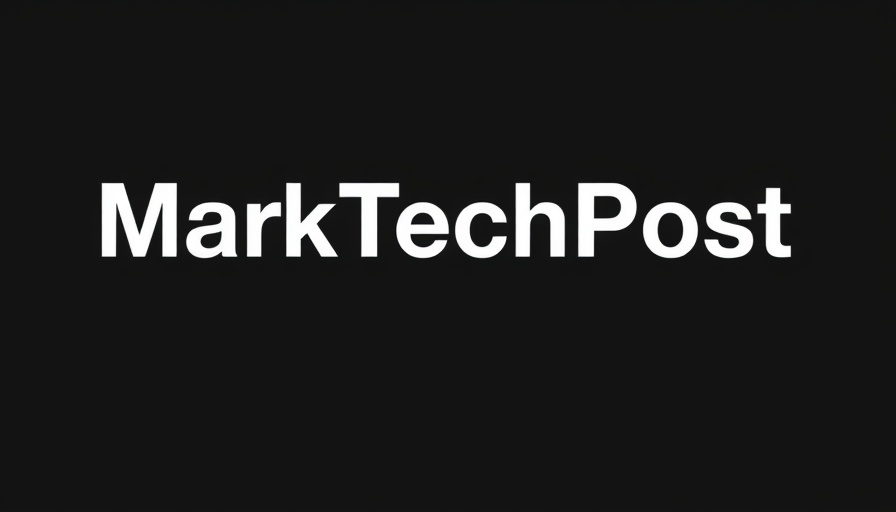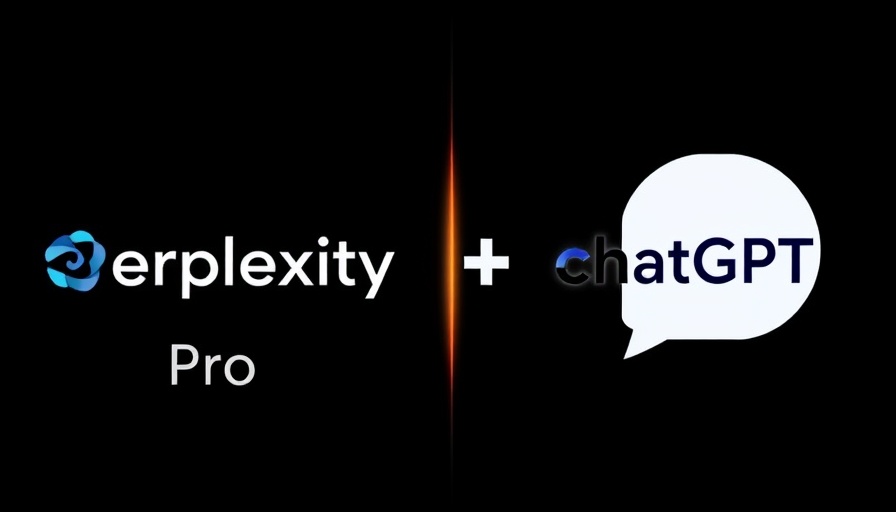
The Future of Intelligent Automation: A Game Changer for SMBs
The Model Context Protocol (MCP) is redefining how businesses can leverage intelligent agents to interact seamlessly with their back-end systems. For small and medium-sized businesses (SMBs), one of the most significant challenges is adopting new technologies that can enhance operational efficiency without overwhelming their resources. In this article, we explore the key factors driving successful MCP implementation and adoption tailored specifically for SMBs.
Defining Clear Objectives and Understanding Your Needs
A project’s success begins with setting clear goals. SMBs must define what specific business problems they aim to solve using MCP. Common use cases for incorporating MCP include streamlining workflow through automation, enhancing customer interactions via AI-powered content generation, or optimizing manual processes in DevOps.
To ensure that every voice is heard, engaging stakeholders early in the process is essential. Hosting workshops or interviews can help uncover insights and align project objectives with user needs. Simple pilot projects can serve as quick wins, reinforcing buy-in from both users and management.
Optimizing Protocol and Infrastructure for Integration
When integrating MCP, it’s crucial to design an architecture that supports flexibility and performance. Advanced teams typically utilize protocols such as HTTP/2 or websockets to minimize latency, which can significantly enhance real-time responsiveness in workflows. Adopting a principle of loose coupling—through stateless APIs—ensures that each component can evolve independently, facilitating sustainable growth.
Embedding contextual information—such as user roles and task specifications—within protocol messages can improve the accuracy of AI agents, leading to less confusion and a smoother operational flow. This is especially important for maintaining compliance with regulations and ensuring safe interactions.
Security First: Protect Your Business Data
Security remains a paramount concern in the digital landscape; the 2024 GitLab DevSecOps survey cites a striking 44% of teams noting security as the primary barrier to adopting AI solutions. Therefore, implementing robust security measures is non-negotiable for SMBs looking to leverage MCP.
Employing best practices such as OAuth 2.0 for authentication, role-based access control (RBAC) to restrict permissions, and transparent user consent processes can fortify your MCP environment. This not only builds a secure foundation but also fosters trust with your users.
Development Strategies for Scalable MCP Servers
Another key factor of successful MCP implementation is developing a robust server infrastructure. By focusing on creating reusable and stateless MCP servers, businesses can ensure scalability. Techniques such as container orchestration, using tools like Kubernetes, allow enterprises to handle sudden spikes in demand seamlessly.
Open APIs can facilitate the integration of various applications, providing developers with documentation that accelerates onboarding. This extensibility makes future growth and upgrades straightforward, which is vital in a rapidly changing digital landscape.
Memory and Reasoning: Enhancing AI Agent Efficiency
Furthermore, considering the AI agent's abilities when it comes to memory and reasoning can have profound impacts on business operations. Enabling contextual memory means that agents can keep track of past interactions, which supports both continuity and accountability—a necessity in audit-heavy environments.
Having structured error handling mechanisms in place is also essential to deal with failures intelligently, ensuring operations can proceed smoothly even in the face of faults.
Your Next Steps: Embracing the MCP Revolution
By focusing on clear goals, strong security measures, scalable development practices, and effective use of AI, SMBs can navigate the complexities of adopting the Model Context Protocol. It's not just about deploying technology—it's about transforming your business processes to create more responsive and efficient operations.
As demand for automation and enhanced interaction grows, the MCP stands ready to support the future of intelligent automation. Taking proactive steps today could position your business for the vast advantages that tomorrow offers.
Are you ready to embrace MCP in your business? Start by evaluating your current systems and determining where automation can be implemented for immediate benefits. Take the first proactive step toward revolutionizing your operations!
 Add Row
Add Row  Add
Add 




Write A Comment